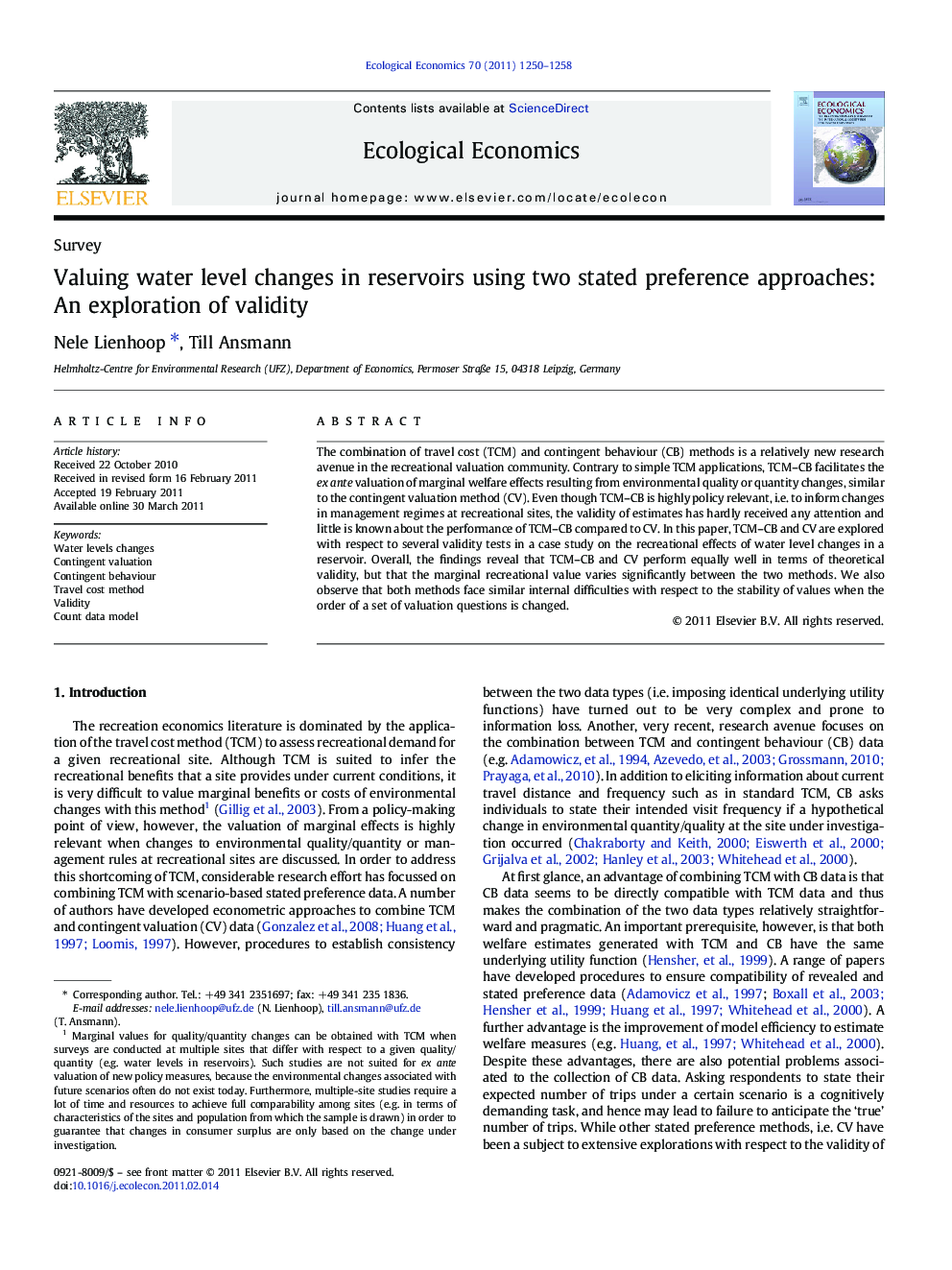| Article ID | Journal | Published Year | Pages | File Type |
|---|---|---|---|---|
| 5050594 | Ecological Economics | 2011 | 9 Pages |
The combination of travel cost (TCM) and contingent behaviour (CB) methods is a relatively new research avenue in the recreational valuation community. Contrary to simple TCM applications, TCM-CB facilitates the ex ante valuation of marginal welfare effects resulting from environmental quality or quantity changes, similar to the contingent valuation method (CV). Even though TCM-CB is highly policy relevant, i.e. to inform changes in management regimes at recreational sites, the validity of estimates has hardly received any attention and little is known about the performance of TCM-CB compared to CV. In this paper, TCM-CB and CV are explored with respect to several validity tests in a case study on the recreational effects of water level changes in a reservoir. Overall, the findings reveal that TCM-CB and CV perform equally well in terms of theoretical validity, but that the marginal recreational value varies significantly between the two methods. We also observe that both methods face similar internal difficulties with respect to the stability of values when the order of a set of valuation questions is changed.
Research Highlights⺠We apply contingent valuation and combined travel cost - contingent behaviour. ⺠Both methods are compared in terms of their validity to estimate marginal effects. ⺠Estimates of marginal welfare effects differ significantly. ⺠Both methods generate highly valid and robust welfare estimates.
